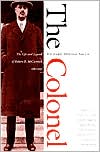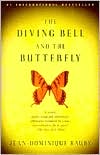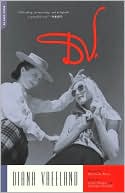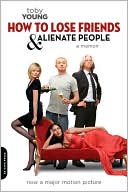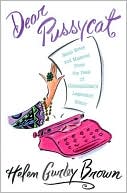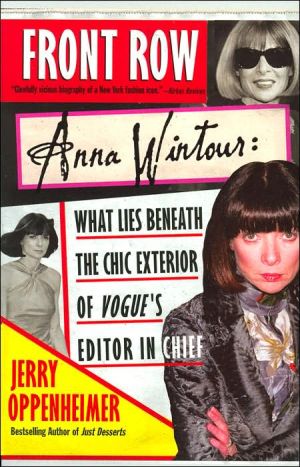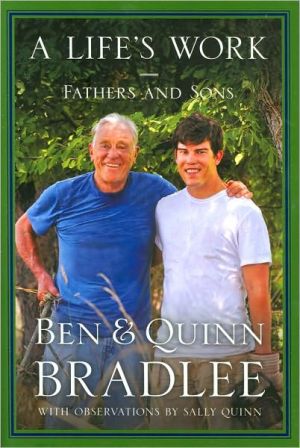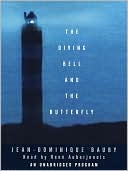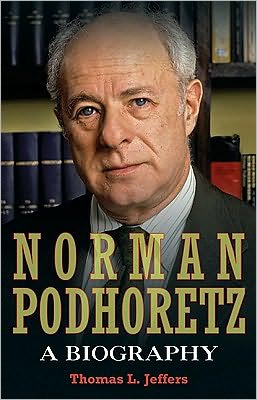Colonel: The Life and Legend of Robert R. McCormick, 1880-1955
This is the acclaimed biography of a giant of American journalism. As editor-publisher of the Chicago Tribune, Robert R. McCormick came to personify his city. Drawing on McCormick's personal papers and years of research, Richard Norton Smith has written the definitive life of the towering figure known as The Colonel.
Search in google:
This is the acclaimed biography of a giant of American journalism. As editor-publisher of the Chicago Tribune, Robert R. McCormick came to personify his city. Drawing on McCormick's personal papers and years of research, Richard Norton Smith has written the definitive life of the towering figure known as The Colonel. Publishers Weekly Returning from France in 1918 as a colonel in the U.S. Army, Robert R. McCormick (1880-1955) built the Chicago Tribune, in which he inherited a significant share, into a powerful, idiosyncratic giant that dominated the upper Midwest for decades. Although top professionals in many fields shrank into terrified toadies in his presence, the paper was a roaring commercial success, and some of its investigative coups rank with the best anywhere. According to Smith (Thomas E. Dewey and His Times), "The Colonel," who "needed enemies, it seemed," found them everywhere, including his New Dealing Groton classmate Franklin D. Roosevelt. Allying himself with prewar isolationists and homegrown fascists, he proved even more dangerous in wartime: thanks to his major-league reporters, the Tribune ran the pilfered story of American contingency plans for war with Germany three days before Pearl Harbor and exposed, in 1942, the top-secret code breaking that made possible the U.S. victory over the Japanese at Midway. (McCormick evaded legal retribution.) The Colonel's postwar stewardship was weakened by heavy drinking, increasing reclusiveness, two divorces and his lack of an heir, yet he managed to keep a jaundiced eye on things, raging to the end "like Lear on the heath." Writing with a tart wit leavened by wry sympathy, Smith engagingly evokes an American original. Photos not seen by PW. (July) FYI: Publication marks the 150th anniversary of the Chicago Tribune.
\ \ \ \ Chapter One\ \ \ 1\ The House of Medill\ "Go in boldly, strike straight from the shoulders, hit below the belt as well as above, and kick like thunder."\ —Joseph Medill to Abraham Lincoln, September 10, 1859\ Joseph Medill traced his family origins to the sixteenth century, to a band of French Huguenots who crossed the English Channel to avoid persecution by a Catholic king. Medill's grandfather found work in the famous Belfast shipyards that launched Britannia as a great seagoing power. His father, William Medill, was born in 1792 on a farm near Dram and Coothill, County Monaghan. Reared a devout Calvinist, William passed on to his son not only the Medill obstinacy and moral courage but also his creed's stern insistence on making civic life conform to God's will.\ Something else flowed in the Medill blood as well—a disdain for lordly Britain that drove William and his bride, Margaret, to forsake Ulster for the New World soon after their 1819 wedding. Joseph, their eldest son, was born on April 6, 1823, near the town of St. John in a disputed region of northern Maine later awarded to British Canada under the Webster-Ashburton Treaty. Beginning life on foreign soil deprived Joseph Medill of any chance to become president of the United States. This caused a lifelong grudge, worn like a birthmark, against America's hereditary enemy. But it also inflamed the outsider's identification with his adopted homeland, making Medill plus royaliste que le roi.\ In 1832, William and Margaret Medill resumed their westward travels, part of a broad migratory river that surged up and over theAppalachians until Ohio became the third most populous state in the young republic. Memories of the War of 1812 were still fresh along the frontier, even around established communities like Massillon, where the Medills bought a farm after a cholera epidemic diverted them from their original destination of St. Louis. In a later autobiographical sketch, only recently uncovered, Joseph Medill remembered Massillon as "a very lively place populated by energetic and pleasant people." The Medills resided there six years, until William bought a farm in nearby Pike township. During this period young Joseph heard bloodcurdling tales of Indian atrocities caused by British provocateurs.\ A schoolboy rhyme of the period captures both the pride and the justifiable sense of military inferiority with which upstart Yankees confronted their haughty former masters:\ We love our rude and rocky shore And here we stand Let foreign navies hasten o'er And on our heads their furies pour And peal their cannons' loudest roar And storm our land They still shall find our lives are given To die for home, and leant on Heaven Our hand.\ If the adult Joseph Medill often behaved as if he had a personal pipeline to heaven, he came by his self-assurance the hard way, having assumed responsibility for two sisters and three younger brothers as their father's health declined and his attempts to farm the scrubby hill country of northeastern Ohio proved unprofitable. An intellectually precocious boy, Joseph befriended an elderly Quaker whose extensive library served as his first classroom. Impressed by the tall, spare youth with rust-colored hair and an insatiable appetite for books, the older man let Joseph feast on thick volumes of history and biography, supplementing his literary diet with the likes of Milton, Shakespeare, Pope, Shelley, Dickens, and Irving. Each Saturday the youngster walked nine miles "hunting up some teacher at Canton to recite to or help me out of hard places in Mathematics, Latin, Chemistry, Natural Philosophy, Law, etc." On the side he took subscriptions for Horace Greeley's influential New York Weekly Tribune.\ "It was hard work and what education I obtained came by self-denial and application," Medill reminisced half a century later. He developed a hero worship for Benjamin Franklin, another self-taught, self-made poor boy who never hesitated to challenge the conventional wisdom of his time. With something of Franklin's mental versatility, if little of his bubbling wit or generosity of spirit, the future editor considered the Bible "the most wonderful astrological book we have" and the electricity that powered humming telegraph wires as a direct gift from God. Making a fetish out of common sense, Medill decided that there was nothing sensible about English orthography, so he devised his own rules of spelling, arbitrarily dropping all silent letters.\ His fascination with ancient Rome and the crumbling republic immortalized by Edward Gibbon prompted an extravagant admiration for Roman order and a corresponding suspicion of anyone who did not share his belief in a strong central government as the engine of American greatness. In Medill's Tribune, the word Nation was always capitalized and the United States referred to in the singular, as an integrated federal republic and not the loose confederation of sovereign states enshrined in Jeffersonian dogma. Like many Scots-Irish newcomers, young Medill brought with him a disdain for slavery and the southern aristocracy so reminiscent of caste-conscious Britain.\ Wherever Medill came by his ideas, he didn't get them from classroom instructors, his formal education being limited to a few months in a district school and a brief sojourn at Massillon Academy. In February 1844, a fire wiped out his family's homestead and his own hopes of pursuing a college education. His longing to escape the drudgery of Ohio farm life survived the flames, however, as did the stubborn will and lonely sense of duty imparted by his Presbyterian ancestors.\ To assist his struggling family, he landed a teaching position in a rural schoolhouse at $25 a month. Something of his frustration, as well as his rich polemical talents, is conveyed by an angry editorial of somewhat later vintage. "Teacher's wages are jewed down to that delicate point at which a lazy ignoramus is puzzled whether to teach or maul rails," Medill sputtered, the memory still rankling. "In the name of common sense, how can one person be expected to hear a dozen branches recite twice, three, or four times in a single day, out of as many different kinds of schoolbooks? And all this in a single room, densely jammed, wretchedly heated, unventilated, some roasting, others shivering, all breathing an atmosphere foul as a glue factory."\ In the classroom Medill earned his spurs by thrashing three reluctant scholars on the first day of school. His pugilistic exploits caught the attention of his future bride, Miss Katharine Patrick, the daughter of a county judge who doubled as editor of the Tuscarawas Chronicle. Pining for the refinements of life in his native Belfast, James Patrick had books and oysters in the shell brought over the mountains in saddlebags. Miss Patrick's mother, also named Katharine, was descended from Hudson Valley grandees who had fought in the Revolution and moved west as their fortunes steadily declined. One thing that did not diminish was the family's sense of entitlement. According to tradition, Katharine Van Etten Westfall always carried a bag of gold dollars for distribution to anyone who could provide her with a chicken dinner.\ In time, Medill began hanging around newspaper offices, where he learned to set type, work a hand press, and write an occasional article or editorial. At the age of twenty-one the industrious young man apprenticed himself to a Canton lawyer. Two years later he entered into a partnership with George McIlvaine, a future chief justice of the Ohio Supreme Court. His new calling brought him face to face with his fellow attorneys Salmon P. Chase and Edwin M. Stanton, both destined, as mainstays of Lincoln's cabinet, to become invaluable sources for the Chicago Tribune. Chase and Stanton were gifted public performers, able to draw upon forensic talents denied to Medill. Given the choice, Medill would rather argue his convictions from the cloistered confines of an editor's office. There, alone with his pen and a bottomless capacity for moral indignation, he could hurl obiter dicta with impunity.\ Never hesitant to assert his historical claims, Medill in later years took credit for the ensuing political revolution. As he put it, "The honor of giving birth to the Republican party ought to be divided between Steve Douglas and myself. I began by preaching the death of the Whig party in my little Whig paper; Douglas hastened it by pulling down the bars and letting the South into the free territory."\ This was not as far-fetched as it might sound. Quickly abandoning his tepid pursuit of the law, Medill in 1849 purchased the Coshocton Whig. His first act as publisher was to rename his acquisition the Republican. As such, it lent powerful support to a nascent fusion movement of antislavery elements in the region. Seeking a broader stage for his talents, Medill looked to Cleveland, a handsome city of rapidly expanding influence on the shores of Lake Erie. In the fall of 1851 he established a morning paper there called the Forest City, later merged with a local abolitionist sheet to form the Cleveland Leader. Hoping to repeat his earlier political success, the editor campaigned for General Winfield Scott, the vainglorious Mexican War hero nominated by the Whigs in 1852 to oppose the aggressively mediocre Democratic presidential candidate, Franklin Pierce. In November, Scott suffered a crushing defeat, losing even Whiggish Ohio by more than 30,000 votes.\ Scott's rejection strengthened Medill in his belief that the time had come to bury the Whig party, whose English antecedents made it anathema to Irish voters, and raise up in its place a new political organization pledged to resist the spread of slavery. Encouragement in these party-building efforts came from Horace Greeley and his New York Tribune. Greeley was a professional eccentric, in the vanguard of every mid-century reform campaign from vegetarianism to the utopian ideas of the French socialist Fourier. Greeley's idealism had its limits: once asked to contribute to a fund that would save sinners from going to hell, the editor snapped, "I won't give you a cent. There don't half enough go there now." With his pink skin, piping voice, and trademark chin whiskers, Greeley did not look formidable, but his crusading zeal rivaled Medill's own, and no one laughed at the Tribune's nationwide circulation of 50,000.\ Greeley employed Medill as his Cleveland correspondent, visiting him on trips to the Western Reserve and beaming with approval as the Leader rallied Ohioans dismayed by the bumbling incompetence of the Pierce administration. Medill's grassroots organizing accelerated during the winter of 1852-53. After sampling antislavery opinion, he formally proposed the establishment of a new party, to be known as the National Republicans (a title previously applied to the short-lived anti-Jackson coalition of the early 1830s, uniting eastern commercial interests and western advocates of Henry Clay's ambitious program of internal improvements). One night in March 1854, he called a meeting of Ohio politicians. Although fewer than a dozen responded, it was more than enough to fuel a tedious debate about what the new party might be called. Hoping to attract dissatisfied former Democrats like himself, Salmon P. Chase argued for the name Free Democrats, but a majority agreed with Medill that any party committed to the natural-rights philosophy of the founding fathers should bear the name Republican. A similar gathering held the month before at Ripon, Wisconsin, had anticipated what an outdoor convention at Jackson, Michigan, that summer only ratified, replacing the enfeebled Whigs with a movement whose youthful fervor was undiminished by its sectional appeal.\ At the age of thirty-two, Joseph Medill was a force to be reckoned with, a seasoned journalist with a taste for politics and a talent for organizing other men to do his bidding—exactly the sort of upwardly mobile American whom Horace Greeley advised to "go West, young man, and grow up with the country." Some early Tribune histories claim that Greeley's famous counsel was originally directed at Medill himself. This seems unlikely; still, it was only natural that the New York editor should urge his western protege to go where he might lend the greatest assistance to their common cause.\ In the winter of 1854-55 that meant Chicago, a crude but promising town boasting 85,000 people, more than 500 saloons, and 110 brothels. Less than forty years had passed since the Indian massacre of inhabitants of Fort Dearborn, near the mouth of the Chicago River. In the 1830s the fort had been rebuilt to serve as Winfield Scott's headquarters in a burlesque war against the Fox and Sauk Indian tribes. Scott had assembled his strategists at Rat Tavern, a frowzy house of public entertainment presided over by Long John Wentworth. At six feet, seven inches tall, and weighing over three hundred pounds, the Democrat-turned-Republican Wentworth was another of the race of giants who created Chicago, then and for years afterward called Mudtown by unfortunate pedestrians in clawhammer coats and freshly pressed linen trousers.\ As it happened, Greeley knew of another enterprising journalist who might be willing to enter into a Chicago partnership with Medill. Charles H. Ray was a former medical doctor who was less interested in conventional surgery than in ridding his country of the cancer of slavery. For the past three years he had edited the Galena, Illinois, Jeffersonian, a maverick Democratic newspaper opposed to the repeal of the Missouri Compromise implicit in Douglas's Kansas-Nebraska Act. As clerk of the Illinois state senate in February 1855, Ray had announced the narrow victory of Lyman Trumbull over the downstate lawyer Abraham Lincoln in their contest for a U.S. Senate seat. Now he dreamed of starting a penny newspaper in Chicago, both to further the sacred cause of freedom and to shatter Senator Douglas's presidential ambitions.\ Greeley, anxious to have a Chicago acolyte, wrote mutual letters of introduction for Medill and Ray. By the time these were exchanged in a corridor of the Sherman House in March 1855, Medill had already received an independent feeler from Captain J. D. Webster, one of the owners of the faltering Chicago Daily Tribune, an outgrowth of the weekly Gem of the Prairie. The Tribune had been born in a third-floor room at the corner of LaSalle and Lake streets eight years earlier with a promise to be "neutral in nothing; it will be independent in everything." Investigation revealed that the paper could be had for much less than the cost of launching a new sheet.\ The reasons why said volumes about Chicago's combustible mix of ethnic and religious rivalries. The Tribune's noisy hostility to foreigners, especially Irish Catholics, and its ham-handed opposition to saloons patronized by the foreign-born, had done nothing to endear it to immigrants. Indeed, only a few weeks earlier the city editor had been challenged to a duel after he criticized a ship's captain for transporting the papal nuncio, the future Cardinal Bendini, on his expedition into the American wilderness.\ Medill needed little persuading to buy a one-third interest in the venture. Ray and Medill's Cleveland bookkeeper, Alfred Cowles, came in for most of the rest. As befitting one of his statewide visibility and extensive political contacts, Ray became editor-in-chief of the revamped Tribune. Medill was named managing editor, at $40 a week. In June 1855, the new team, an uneasy alliance in a city poised on the brink of greatness, commenced business.\ * 2\ When assessing his paternal ancestors and their contentious progeny, Colonel McCormick was more than usually blunt. "All the McCormicks are crazy except me," he insisted, mindful that not everyone would rush to accept his qualification. One could with equal candor and greater charity say that the McCormicks were a family in which emotional balance and intellectual (or any other) modesty were notable chiefly for their absence. This turbulent clan had its roots on the bleak, windswept island of Mull, carved by the sea off the northwest coast of Scotland. Long before Robert Louis Stevenson made Mull famous in Kidnapped, the visiting Samuel Johnson had concluded that "in this country every man's name is MacLean" (usually spelled MacLaine). The McCormicks were a sept of this dominant clan. Their motto, "Meat and Drink to McCormick," was, in the Colonel's puckish telling, "a privilege they received from the MacLaines for a very, very fine job of cattlestealing."\ Whether or not they were outlaws in the technical sense, a love of combat undoubtedly flowed in the McCormicks' blood, and the seventeenth century afforded no shortage of opportunities for born fighters like Captain James McCormick. Leaving Mull for battle-scarred Ulster, he plunged headlong into the sectarian strife that seems a permanent part of Irish history. In 1690 he took up arms against James II, the feckless Catholic monarch who had been chased out of England the year before. McCormick distinguished himself in the defense of the Protestant stronghold of Londonderry. He played a hero's part at the Battle of the Boyne, the decisive encounter that secured the English throne for the Protestant contender, William of Orange (after which James, the last in a line of Stuart kings dating to 1603, scurried back to France with the immortal concession speech, "I do now resolve to shift for myself"). For his exploits, James McCormick was memorialized in a Londonderry church window and given a coat of arms featuring a mailed fist clutching a spear.\ Adoption of the Toleration Act of 1689 calls into question the subsequent family tradition that Captain McCormick's son, Thomas, shook the dust of unhappy Ireland from his boots and sailed for America in 1735 in search of religious freedom. Perhaps, as a good Calvinist fearing God and nothing else, Thomas McCormick did forsake idolatrous Britain for religious liberty in the New World. But it is just as likely that he was lured across the ocean by the promise of cheap, abundant farmland. Settling on two hundred acres near what is now Harrisburg, Pennsylvania, he raised crops and children in equal profusion. His fifth son, Robert, the first of his line to bear that name, was also the great-great-grandfather of our subject.\ "McCormicks always marry their betters," the Colonel maintained; if so, the pattern may have been set by his eighteenth-century eponym, whose bride, Martha Sanderson, brought to the altar a handsome dowry and the managerial skills to run a large farm and family while her husband was away fighting British redcoats in the Carolinas. In 1779 the McCormicks moved south, to the fertile Shenandoah Valley of Virginia. A change of scenery did nothing to lessen Robert McCormick's unwavering adherence to the Scottish piety of his forebears; appalled by local Presbyterian hymn-singing, he founded a rival congregation faithful to the old ways. In years to come, liturgical infighting ranked alongside disputed patents, contested fortunes, and savage political feuds as a source of McCormick family acrimony.\ Robert and Martha McCormick contributed handsomely to the new nation's exploding population. In July 1780 they welcomed a sixth son, also named Robert, who would more than validate the flippant tribute his great-grandson made to the upward mobility of McCormick men. At the age of twenty-eight, Robert II wed Mary Ann Hall, an uncommon woman commonly known as Polly. A soldier's daughter with expensive tastes that were rarely gratified in the barracks hall or officers' quarters, Polly appeared to her loving family as distinctive as the peacocks preening themselves on the lawns of Walnut Grove, the 532-acre McCormick estate.\ Hoping for still greater riches, Polly's husband devised a horse-powered thresher, a blacksmith's bellows, and other machines intended to ease the backbreaking labors of the American farmer. Yet the proprietor of Walnut Grove was repeatedly frustrated in his search for a reliable, affordable horse-drawn reaper, which, by replacing the ancient sickle and heavy cradle, could vastly multiply each year's wheat harvest during the few short days before a crop ripened and shattered. Such a device would revolutionize the agricultural economy, so it is hardly surprising that tinkerers besides Robert McCormick should pursue the grail for themselves. What is strange, or would be among all but the combative offspring of Captain James McCormick, is that long after Robert's death in 1846, his work was at the center of a controversy involving him and his eldest son, Cyrus.\ Born at Walnut Grove in February 1809, Cyrus McCormick inherited his father's mechanical gifts and aptitude for business. ("If inventive genius is hereditary," Colonel McCormick commented late in life, "I got it from the McCormick side. None of the Medills knew a fence from a lawn mower.") While his father struggled for twenty years to master the technology of vibrating knives and grain platforms, Cyrus looked on. Evidently he learned something, for in 1831 he was able to supply the critical missing element, a wheel to operate the reaper's complex gears. Beyond this innovation, it was Cyrus's ability to absorb and integrate the discoveries of others that formed the basis of his claims to be inventor of the reaper.\ Still, the world did not exactly beat a path to his door, even after Cyrus patented his new machine in 1834. Father and son opened an iron furnace, succeeding only in draining the family's resources. Soon Walnut Grove was heavily mortgaged. In 1844, Cyrus left home to pursue new customers for his reaper. His efforts were rewarded in the fast-growing northwest, the monotonously flat terrain of which proved much better suited to the device than the gullied hills of Virginia. In 1847, seeing where his future markets lay, Cyrus descended on Chicago, a human whirlwind in size 55 trousers, armed with a letter of introduction from his political twin, Stephen A. Douglas.\ That June, Douglas's journalistic nemesis, the Chicago Tribune, published its initial run of four hundred copies. Delegates to the city's first political convention howled in protest over President Polk's veto of a harbor and river improvements bill. The executive in distant Washington was not the only thing in bad odor with Chicagoans that summer. Owing to the proliferation of meat-packing plants along its banks, the Chicago River had become an open cesspool, as deadly to local inhabitants as the inky lake waters delivered through wooden pipes, which invited periodic epidemics of cholera. Life in early Chicago required intestinal fortitude, of which Cyrus McCormick had more than his share. Erecting a showplace factory on three hundred feet of lakeshore property just south of the modern-day Tribune Tower, McCormick sold 1,500 reapers and cleared $50,000 in his first year. The mill suffered extensive damage in an 1851 fire. Rebuilt within six months along more elaborate lines than ever, its thirty-horsepower engine became one of the local wonders routinely displayed to out-of-town visitors.\ McCormick himself was something of a Chicago attraction. Admirers credited him with channeling nature "to the benign end of civilization and bringing bread to the mouths of the poor." In reality, his chief interest was bringing money to himself. This he did in spectacular fashion, anticipating the Fields and Armours, Wrigleys and Pullmans, who would make Chicago what H. G. Wells called "the most perfect presentation of 19th century individual industrialism I have ever seen." By 1856 the McCormick firm could report annual profits of $300,000, a figure that might have been higher still if not for the proprietor's hobby of suing his enemies. Having persuaded his younger brothers William and Leander to leave Walnut Grove and take a hand in running the Chicago operations, Cyrus was free to indulge himself in an endless round of lawsuits.\ By no means all of these dealt with patent infringement. For example, the reaper king pursued the Pennsylvania Railroad for twenty-one years over some luggage he said had been damaged by a lightning bolt. The officers of the New York Central were more adroit; they wrote out a check the moment they heard a McCormick writ was in the offing. In 1854 the litigious inventor went up against Abraham Lincoln, the prairie lawyer who had been engaged by a competitor from nearby Rockford, Illinois. Before the case could go to trial, Lincoln was silenced by Joseph Medill's attorney friend, Edwin Stanton, who took one look at the gawky westerner in his sweat-stained linen duster and asked, "Where did that long-armed baboon come from?" No matter; Lincoln's side won the case and the Springfield attorney pocketed $2,000. It was, as events would show, a down payment on future battles with the Chicago industrialist, whose southern sympathies made him and his family personae non grata among sworn foes of slavery like Medill.\ * 3\ It was inevitable that Medill, like McCormick convinced that he was doing the Lord's work and sharing the vision of a great city lurking within the untidy straggle of wooden buildings ranged along the stinking river, should cross swords with the transplanted Virginian who railed against "Abolitionist Chicago." It was just as predictable that Medill and his Tribune partners would forge an alliance with Lincoln, whose visit to their offices in the spring of 1855 became part of the corporate mythology inherited by Colonel McCormick and his blood relations.\ "Can you tell me when I can see Dr. Ray?" the tall stranger inquired. Ray, it turned out, was away from the building.\ Might the visitor be speaking, then, to "the new editor from Cleveland—McDill, Medill or something?"\ He was indeed. On learning of this, Lincoln handed over four dollars for a Tribune subscription, along with compliments to the new management for having abandoned the nativism of their predecessors. The talk soon turned to current politics, in particular to Medill's campaign to attract disaffected Whigs such as Lincoln into Republican ranks. "From that day until his death I enjoyed a peculiar and close intimacy with Mr. Lincoln," Medill asserted long afterward. He was not the first political follower to mistake access for influence, or to fill Lincoln's pregnant silences with his own thoughts, interpretations, or objectives. The Collected Works of Abraham Lincoln, ten volumes regarded as definitive, contain but four letters from Lincoln to Medill, while Medill's papers, with their generous helpings of unsolicited counsel, illustrate the one-sided relationship existing between the two men during the convulsive decade leading up to and including Lincoln's wartime presidency.\ In the turbulent mid-fifties, Medill helped to raise money and rifles for antislavery forces in Kansas, where a border war between Missouri Bushwhackers and Kansas Jayhawks served as a dress rehearsal for a vastly bloodier conflict looming on the horizon. Closer to home, he and Ray utilized the "horse blanket" format of four immense pages, each nine columns wide, with a scattering of advertising on each page, to make their Tribune into a combination town crier, purveyor of gossip, Chamber of Commerce promoter, and scold. When a Mrs. Wheeler, married just a month, twice attempted suicide, the editors demanded that her abusive husband spend a year in jail, breaking rocks. Under the heading SERVED HIM RIGHT, the paper poured scorn on a Chicagoan judged guilty of cruelty toward a horse, than which there was hardly any crime more "despicable or cowardly."\ To one of Medill's outlook, the greatest crime of all was slavery, and the worst offender sat in the White House. James Buchanan was only the latest doughface—a northern man with southern principles—to defile the place of Washington. The president's brazen attempts to recognize the pro-slavery government imposed on Kansas by border ruffians made him a latter-day Judas. Adding to Buchanan's sins was the worst depression yet experienced by the American people. As panic swept the marketplace and money went into hiding, even Chicago felt a momentary check in its hitherto unstoppable expansion. Cyrus McCormick continued to pay his workforce every Saturday night, but the city's journalistic establishment trembled.\ In July 1858, the Tribune was driven to a merger with the Democratic Press, operated by "Deacon" William Bross, a future lieutenant governor of Illinois, whose extravagant brows and flowing beard gave him the appearance of an Old Testament prophet, and young John Locke Scripps. The new concern borrowed heavily to meet its obligations, including payment for one of Richard Hoe's new high-speed rotary presses and the first copper-faced type to be used in Illinois. Thus girded for battle, the Tribune looked forward to besting its rival, the Chicago Times, on the streets and at the polls.
IllustrationsixMedills, Pattersons, McCormicks: A Partial Family TreexiiPrologue: The Voice of AmericaxvI.Splendid Monsters, 1823-19031.The House of Medill32.A Second Son373.Fitting In62II.Bulldog, 1903-19184.Silk Stockings895.Into His Own1246.The Wine of Death1567.Kaiser Bill, Kaiser Will181III.The World's Greatest Newspaperman, 1919-19328."We Seem to Be Fighting All the Time"2179.The Man in the Tower25010.Hard Times286IV.The Fox and the Crow, 1933-194511.The Duel31912.Undominated35313.America First38714.At War420V.Some Private Sort of Greatness, 1945-195515.The Last Leaf on the Tree45716.April Fool487Acknowledgments525Notes529Bibliography574Index580
\ Publishers Weekly - Publisher's Weekly\ Returning from France in 1918 as a colonel in the U.S. Army, Robert R. McCormick (1880-1955) built the Chicago Tribune, in which he inherited a significant share, into a powerful, idiosyncratic giant that dominated the upper Midwest for decades. Although top professionals in many fields shrank into terrified toadies in his presence, the paper was a roaring commercial success, and some of its investigative coups rank with the best anywhere. According to Smith (Thomas E. Dewey and His Times), "The Colonel," who "needed enemies, it seemed," found them everywhere, including his New Dealing Groton classmate Franklin D. Roosevelt. Allying himself with prewar isolationists and homegrown fascists, he proved even more dangerous in wartime: thanks to his major-league reporters, the Tribune ran the pilfered story of American contingency plans for war with Germany three days before Pearl Harbor and exposed, in 1942, the top-secret code breaking that made possible the U.S. victory over the Japanese at Midway. (McCormick evaded legal retribution.) The Colonel's postwar stewardship was weakened by heavy drinking, increasing reclusiveness, two divorces and his lack of an heir, yet he managed to keep a jaundiced eye on things, raging to the end "like Lear on the heath." Writing with a tart wit leavened by wry sympathy, Smith engagingly evokes an American original. Photos not seen by PW. (July) FYI: Publication marks the 150th anniversary of the Chicago Tribune.\ \ \ \ \ "The best book ever written about the press."--Hilton Kramer\ \ \ Library JournalRobert R. McCormick, longtime owner and editor of the Chicago Tribune during the first half of this century, makes today's media barons seem bland. The likes of Ted Turner and Rupert Murdoch could learn a thing or two from this colorful and witty biography by an accomplished biographer/historian and director of the Gerald R. Ford Museum and Library. One of McCormick's prep school classmates at Groton was Franklin D. Roosevelt, who was to remain a lifelong rival. The characters here represent a crosssection of early 20th-century Americana, including McCormick's newspaper nemesis, William Randolph Hearst (see W.A. Swanberg's Citizen Hearst, LJ 8/61), Henry Ford, and Al Capone. Some of the best moments in the book are Smith's descriptions of Chicago at the turn of the century, when the term newspaper wars could be taken literally. Highly recommended for journalism and Chicago history collections.Bruce D. Rosenstein, USA Today Lib., Arlington, Va.\ \ \ \ \ BooknewsA biography of a larger-than-life figure in American journalism and publishing. McCormick was the editor-publisher of the from the 1920s through the mid-1950s, an outspoken critic of F.D. Roosevelt (who tried to indict him for treason), and a heroic defender of freedom of the press. Includes b&w photos. Annotation c. by Book News, Inc., Portland, Or.\ \ \ \ \ Kirkus ReviewsThe epic story of the the contentious publisher and fervent conservative who, along with William Randolph Hearst, was a model for Orson Welles's Citizen Kane.\ In its heyday, writes Smith (Patriarch, 1993, etc.), there was no paper quite like the Chicago Tribune, the self-proclaimed World's Greatest Newspaper, and McCormick, its editor and publisher, made himself synonymous with the Windy City. At once acerbic and empathetic, the multifaceted Colonel lived many lives—city official, soldier, inventor, historian, and publisher—but, Smith observes, it is as the begetter of controversies that he is best remembered. McCormick, who joined the Tribune as treasurer after working as president of the Chicago Sanitary District, picked up where his contentious predecessor, maternal grandfather, and early Tribune editor Joseph Medill, left off. Serving in France in 1917, Bert McCormick was promoted to lieutenant colonel and saw heavy action. Returned stateside and established in his sanctum on the 24th floor of the new Tribune Tower, he found in Hoover and Prohibition (and, later, the New Deal Democrats) confirmation of his worst fear: "an overreaching government enacting laws that resulted in unprecedented lawlessness." McCormick's Tribune, a bible to hundreds of small-town editorial writers, waged ceaseless battle with the Colonel's Groton classmate FDR, courting White House ire with revelations of US military plans on the eve of Pearl Harbor and later coming within a hairsbreadth of an espionage indictment over reporting on the Battle of Midway. Consumed with concerns over labor and succession at the Tribune, McCormick spent his final years "marooned," like Kane, a man out of his time. Smith, the first biographer with access to the Colonel's private papers, orchestrates, with an objective eye for ironic detail and a firm grasp of events and their significance, a vivid ensemble of characters on a domestic and international stage.\ An indispensable guide to an outsize character and his era.\ \ \
